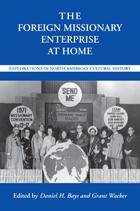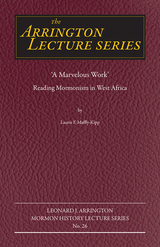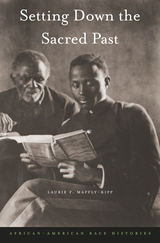
This volume is the first to examine at length and in detail the impact of the missionary experience on American cultural, political, and religious history.
This collection of 15 essays provides a fully developed account of the domestic significance of foreign missions from the 19th century through the Vietnam War. U.S. and Canadian missions to China, South America, Africa, and the Middle East have, it shows, transformed the identity and purposes of their mother countries in important ways. Missions provided many Americans with their first significant exposure to non-Western cultures and religions. They helped to establish a variety of new academic disciplines in home universities—linguistics, anthropology, and comparative religion among them. Missionary women helped redefine gender roles in North America, and missions have vitalized tiny local churches as well as entire denominations, causing them to rethink their roles and priorities, both here and abroad. In fact, missionaries have helped define our own national identity by influencing our foreign, trade, military, and immigration policies over the last two centuries.
Topics in the collection range from John Saillant's essay on the missions of free African Americans to Liberia in the 19th century to Grant Wacker's essay on the eventual disillusionment of noted writer Pearl S. Buck. Kathryn T. Long’s essay on the “Auca martyrs” offers a sobering case study of the missionary establishment's power to, in tandem with the evangelical and secular press, create and record the stories of our time. William L. Svelmoe documents the improbable friendship between fundamentalist Bible translator William Cameron Townsend and Mexico’s secular socialist president Lázaro Cárdenas. And Anne Blue Wills details the ways many American groups—black, Protestant, Catholic, and Mormon—sought to convert one another, stead-
fastly envisioning “others” as every bit as “heathen” as those in far-off lands.
The Foreign Missionary Enterprise at Home is an insightful, provocative collection that will stimulate much discussion and debate. It is valuable for academic libraries and seminaries, scholars of religious history and American studies, missionary groups, cultural historians and ethnographers, and political scientists.

The Arrington Lecture series, established by one of the twentieth-century West's most distinguished historians, Leonard Arrington, has become a leading forum for prominent historians to address topics related to Mormon history. Utah State University hosts the Leonard J. Arrington Mormon History Lecture Series through the Merrill-Cazier Library Special Collections and Archives department.

As early as the 1780s, African Americans told stories that enabled them to survive and even thrive in the midst of unspeakable assault. Tracing previously unexplored narratives from the late eighteenth century to the 1920s, Laurie Maffly-Kipp brings to light an extraordinary trove of sweeping race histories that African Americans wove together out of racial and religious concerns.
Asserting a role in God's plan, black Protestants sought to root their people in both sacred and secular time. A remarkable array of chroniclers—men and women, clergy, journalists, shoemakers, teachers, southerners and northerners—shared a belief that narrating a usable past offered hope, pride, and the promise of a better future. Combining Christian faith, American patriotism, and racial lineage to create a coherent sense of community, they linked past to present, Africa to America, and the Bible to classical literature. From collected shards of memory and emerging intellectual tools, African Americans fashioned stories that helped to restore meaning and purpose to their lives in the face of relentless oppression.
In a pioneering work of research and discovery, Maffly-Kipp shows how blacks overcame the accusation that they had no history worth remembering. African American communal histories imagined a rich collective past in order to establish the claim to a rightful and respected place in the American present. Through the transformative power of storytelling, these men and women led their people—and indeed, all Americans—into a more profound understanding of their interconnectedness and their prospects for a common future.
READERS
Browse our collection.
PUBLISHERS
See BiblioVault's publisher services.
STUDENT SERVICES
Files for college accessibility offices.
UChicago Accessibility Resources
home | accessibility | search | about | contact us
BiblioVault ® 2001 - 2024
The University of Chicago Press









